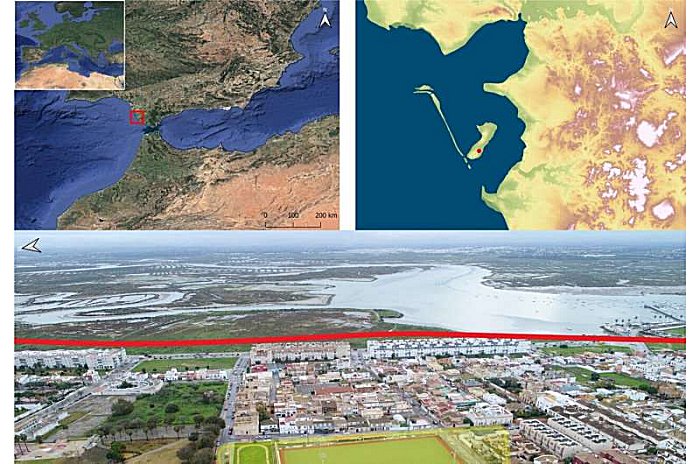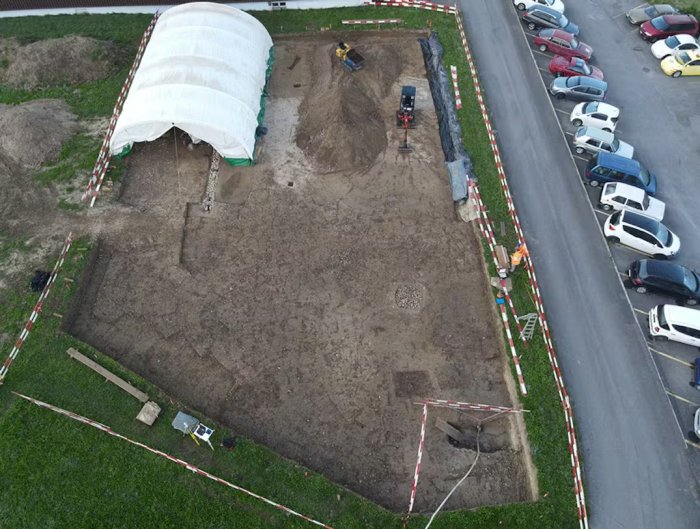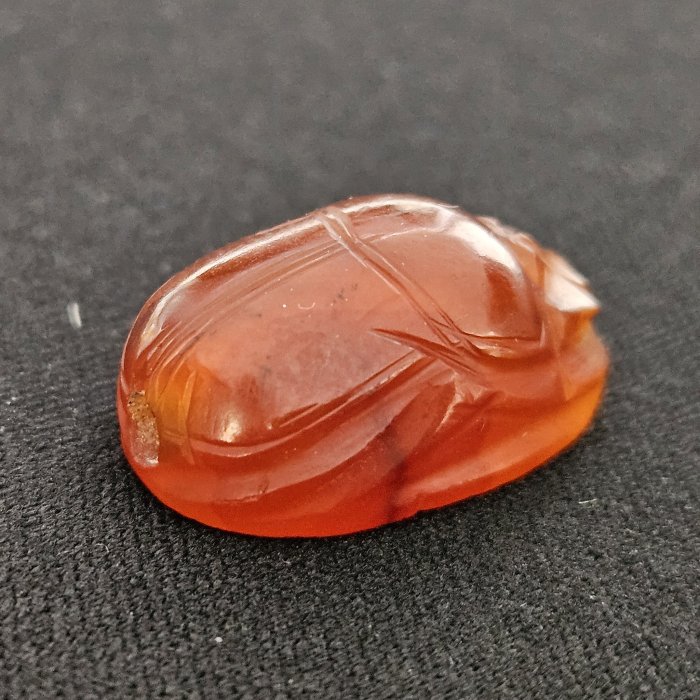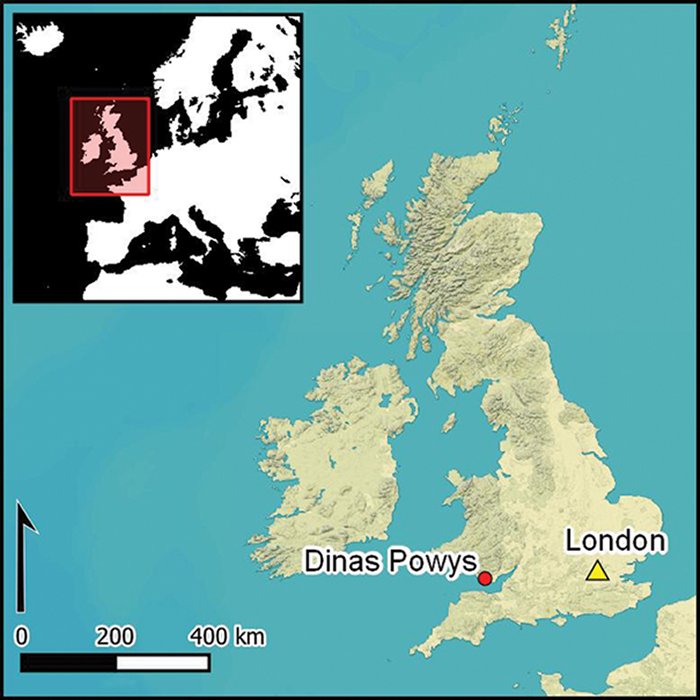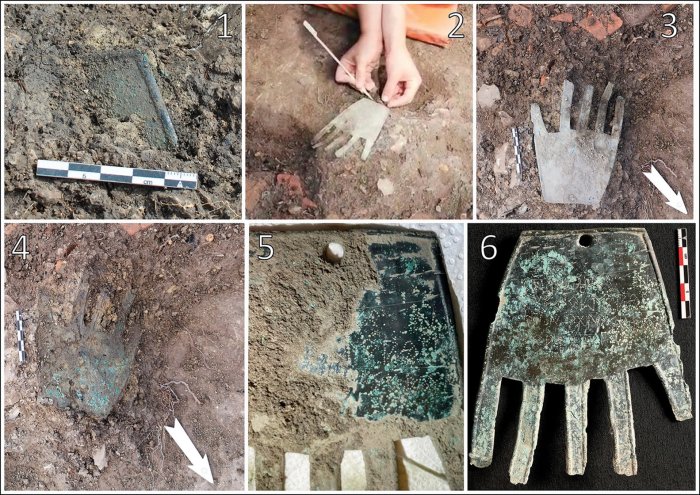Conny Waters – AncientPages.com – Archaeologists excavating in India have come across a 2000-year-old Mauryan-era brick platform that may provide scientists with valuable information about the lost Ashoka pillar site.
Emperor Ashoka who became the third monarch of the Mauryan dynasty and ruled over a vast empire from 268 to 232 B.C is nowadays remembered as one of the most exemplary rulers in world history.
“When Ashoka ascended the throne around 268 B.C., many regarded him a cruel ruler, but he was different and had a unique approach when addressing his subordinates.
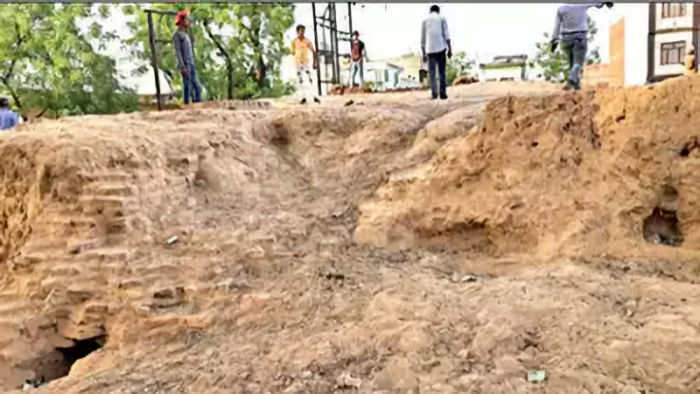
2000-year-old Mauryan-era brick structure discovered in India. Credit: Times of India
Emperor Ashoka changed as a person after he “won the Kalinga War, a battle fought between him and the Mauryan army led by King of Raja Anantha, but the price was high. The war took a tremendous toll on life and property. More than 100,000 soldiers were killed, and 150,000 civilians were deported. Hundreds of thousands of animals were also killed.
All these deaths and suffering made him realize life for all living beings must be improved and respected. Emperor Ashoka changed completely. From being a bloodthirsty ruler, he converted to Buddhism and became a more peaceful Emperor.” 1
The last words of Emperor Ashoka have been preserved on the Mansehra rock edicts. Emperor Ashoka expressed his feelings after witnessing the destruction of Kalinga. According to the translated text, Ashoka felt great remorse for what had happened.
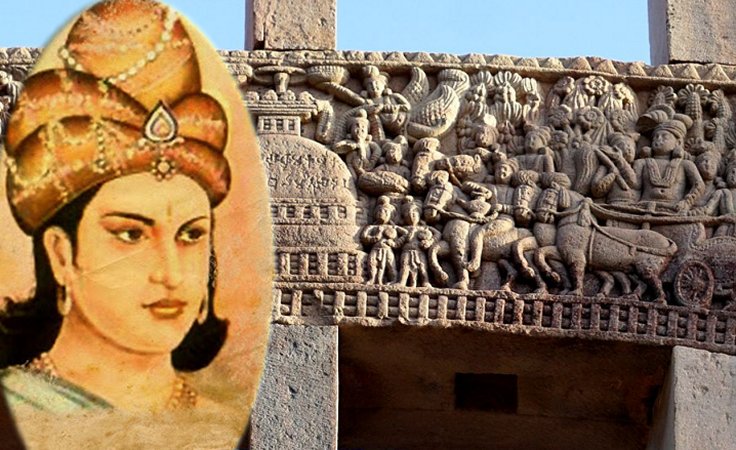
Left: Emperor Ashoka. Credit: Public Domain – Right: King Ashoka visits Ramagrama, to take relics of the Buddha from the Nagas, but in vain. Southern gateway, Stupa 1, Sanchi. Credit: PH๏τo Dharma – CC BY 2.0
According to archaeologists the ancient remains found in the middle of the city of Meerut were not eye-striking at first glance, but later studies revealed these ruins could hold the key to a “lost” Ashoka Pillar site from 3rd century B.C.
A large part of the structure is in the form of a 30m by 35m platform at Vikas Puri. The ancient site is undoubtedly one from the Mauryan period because the bricks are typical of the era,” Brajsundar Gadnayak, superintending archaeologist of the Meerut circle of ASI the Archaeological Survey of India (ASI) said.
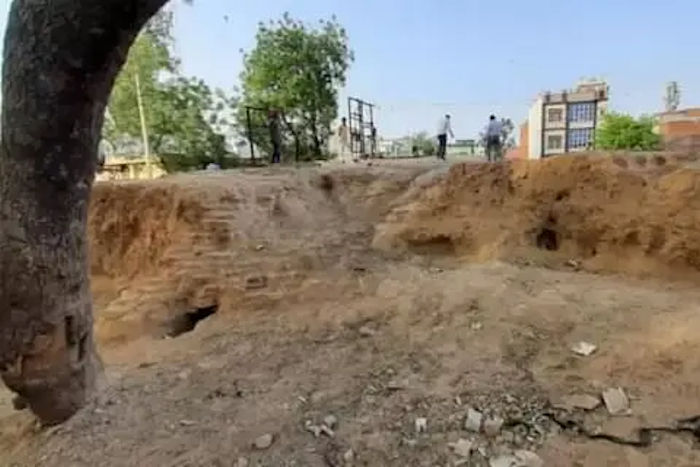
2000-year-old Mauryan-era brick structure discovered in Meerut (source: Swarajya)
“Despite the fact that a portion of the remains was destroyed due to the construction of a power plant, the Meerut circle of the Archaeological Survey of India has closely inspected it and its discovery has raised hopes of gaining fresh insights into the significant period of ancient Indian history that dates back to the Mauryan empire, the largest South Asian empire in history and its Emperor Ashoka,” Opinion India reports.
According to Brajsundar Gadnayak, the bricks used to construct the platform are unique to the Mauryan period and have a specific dimension. Their measurements are 42cm x 26cm x 8cm. He added that the department has also discovered pottery and ceramics from those times. An ancient canal path has also been uncovered, which most likely connects to the Kali river, said Gadnayak.
See also: More Archaeology News
As Opinion India explains, “throwing light on this discovery, historian Dr KK Sharma said: “The Gazetteer (of 1904) mentions the reinstallation of Meerut’s pillar at the Delhi Ridge but we have not been able to find the original site here.”
The Meerut Gazetteer mentioned by him states: “The earliest historical connection which can be made with the (Meerut) district is the erection of an Asoka pillar near Meerut … On the ridge at Dehli (Delhi) now stands a pillar which, according to Shams-i-Siraj, was removed from near the town of Meerut and set up in the Kushak Shikar or hunting palace. The site occupied by the pillar has not been identified.”
Written by Conny Waters – AncientPages.com Staff Writer
